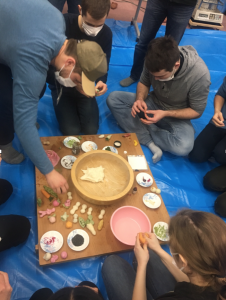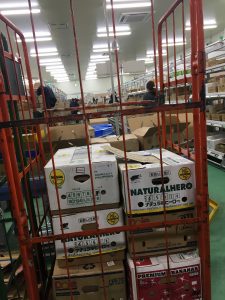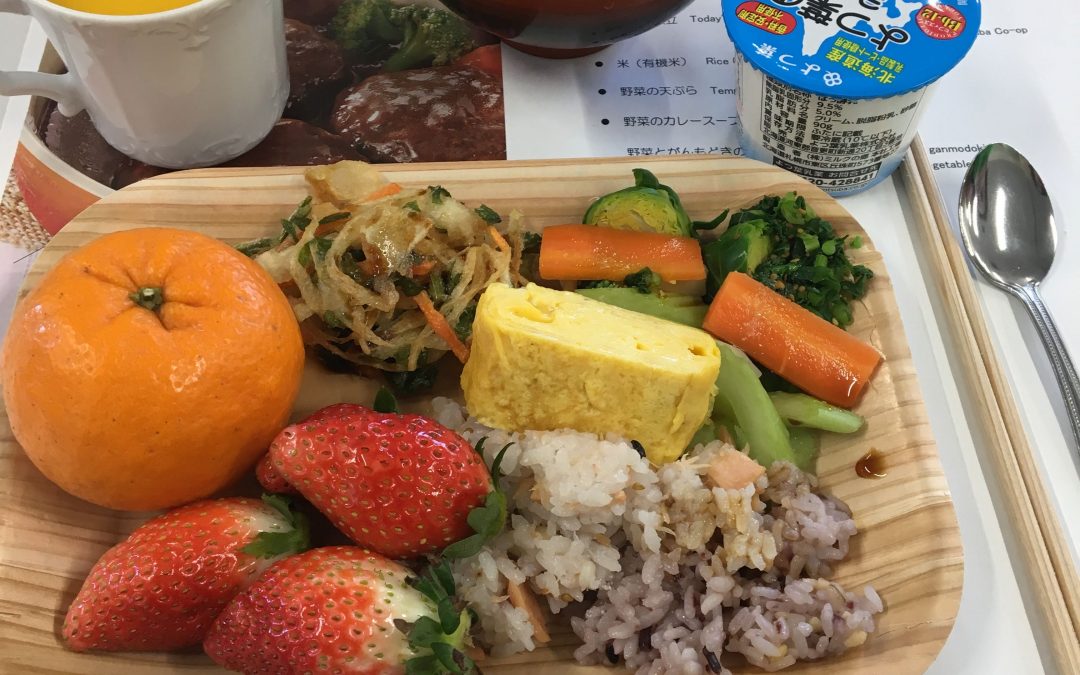While on the surface “What is good food?” appears to be a rather simple question, the progression of this course has challenged an easy, one-dimensional answer. Our time in Japan problematizes a straightforward response of something along the lines of “food that tastes good.” I argue that food that sustains communities through physical and cultural nourishment in an environmentally sustainable way and provides a meaningful sense of security is good food.
Food’s most obvious purpose is nourishment. It physically sustains us so that we may continue our everyday lives. Yet food sustains not only our bodies, but also our cultures. For example, something home-cooked with sustainable and local products from trustworthy venders creates a personal experience that enhances one’s relationship with food, and cannot be achieved through impersonal mass production and factory farming. At Nagawa-Machi, we talked with Nodai students about their revitalization project that seeks to engage with issues such as urban flight, specifically when people leave rural farming communities, leading to the extinction of towns and their traditions. Here, we participated in culturally sustaining food practices; we created rice treats together by hand from traditional recipes that helped us celebrate the town in its annual festival, reinvigorating the space and reveling in its richness.

I chose this photo of us working together in Nagawa-Machi to illustrate how food sustains us culturally–in passing down recipes and working with each other to make a product that preserves the valued traditions enshrined in our handmade food.
Another aspect of good food that I had not fully considered before but has become elucidated through our readings and especially our time at Yotsuba Co-Op is food safety and security. Sternsdorff-Cisterna recounts in his article how a woman he spoke with in a case study had her relationship with food changed once its sense of security was doubted: “When I asked Sawada-san what she thought of the government and its assurances that their radiation standards were safe, she said that she did not consider them useful. Before the earthquake, she said, anzen and anshin could be used interchangeably, but now no one knows where the line between safe and unsafe exists.” This was also a key theme in Dr. Ishii’s lecture on the agricultural fallout after the triple disaster at Fukushima. People’s trust in the security of their food, beyond what they are simply told is “safe” influences their lives and distinguishes for them what is good food to sustain not only themselves but also the loved ones for whom they provide.
The Co-Op reinforced this significance of security of food. One of the women at the Co-Op explained that one of her main motivations for working there was that as a new mother she wanted the security of food the Co-Op provided. Many of the other women agreed that this was one of their primary reasons as well. They also emphasized wanting to know the faces and have at least some relationship with all those involved in each step of the process of their food. This value placed on the security of their food and those who provide it matches the philosophy of the Co-Op which allows itself to cultivate trust and relationships with 20,000 families who opt in to an alternative form of obtaining food that makes them not only consumers but share holders as well, committed to sustainable practices and good food.

Packaging orders for shareholders at the Yotsuba Co-Op
In the spirit of “good food” and because we have such a wonderful opportunity while living on ARI’s organic farm, a few friends and I will be committing eating minimal (if not zero) processed food for the remainder of our time here. Through this practice, we can recognize the responsibility we have in our relationship with obtaining good food, nurture our relationship with those who help provide it for us and the community at ARI, and rely on the security of know our food is sustainable for the environment.
Alyson B.

Recent Comments